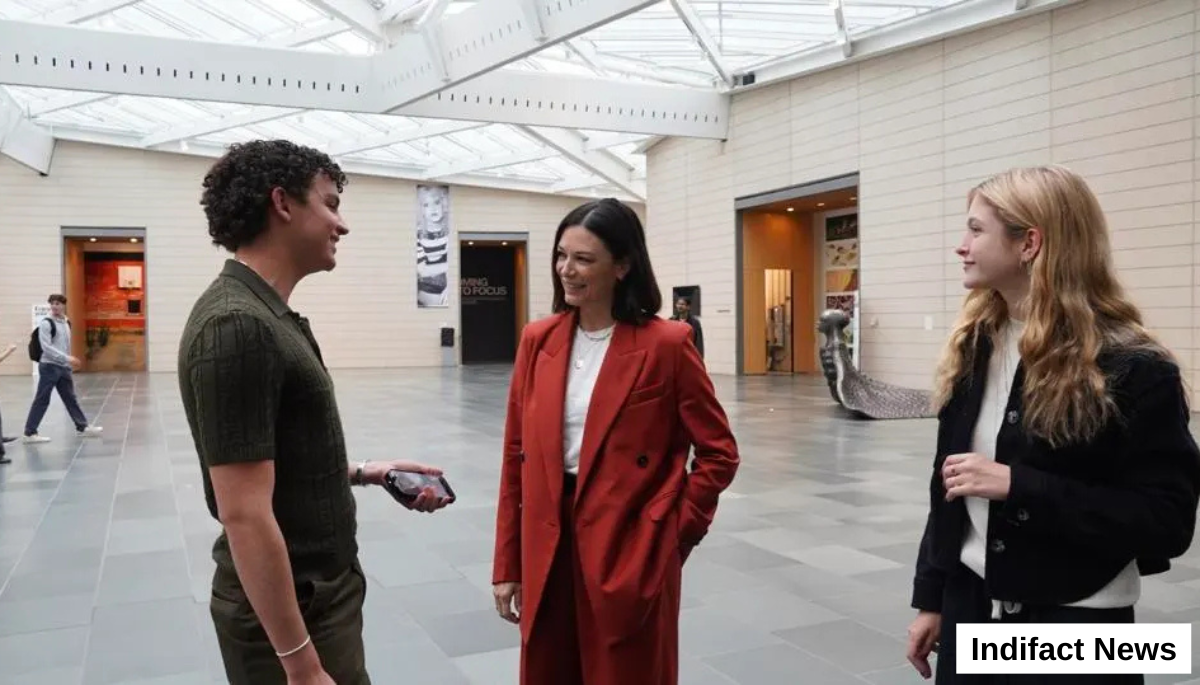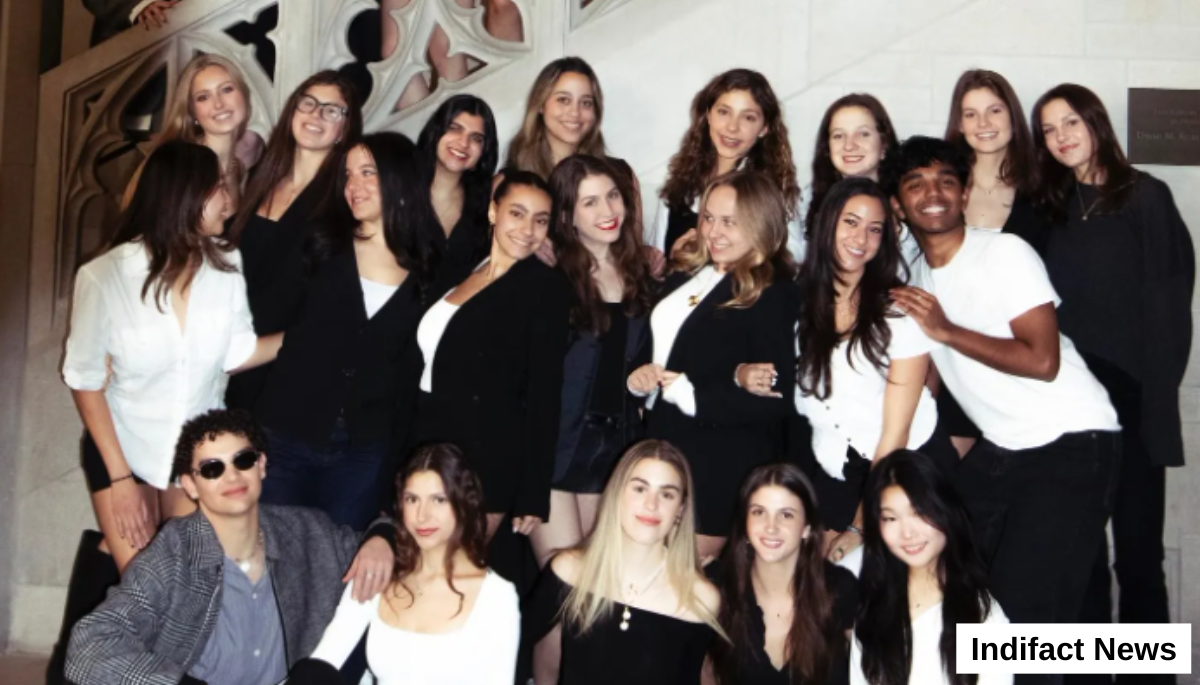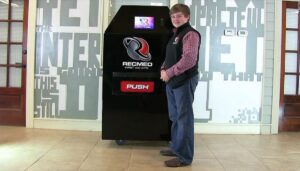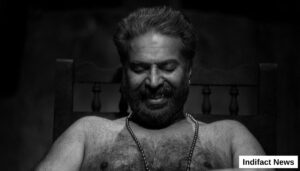
Duke Students Luxury Careers
Haven’t you always wondered how one gets behind the velvet rope of high fashion, exclusive retail, and global luxury? For decades, this highly guarded realm, spanning everything from haute couture to high-end automobiles and elite resorts, operated like a secretive, gilded fortress. Access wasn’t granted through sheer talent alone; it was often dictated by pedigree, geography, and pre-established networks.
Now, imagine this impenetrable fortress being fundamentally restructured, not by corporate mandate or institutional decree, but by a handful of ambitious undergraduates operating out of a university campus. This is the extraordinary story of the Duke Business of Retail Society (Duke Students Luxury Careers), founded by students who simply wanted to work in luxury, but whose initiative became so compelling, so attuned to the industry’s future needs, that high-level executives from the world’s most recognizable brands felt compelled to follow the path they created.

The narrative of Duke Students Luxury Careers is more than a campus success story; it is an economic phenomenon that exposes the structural flaws in how elite universities prepare students, and how the luxury sector attempts to recruit its future leaders. This is the blueprint for the new architecture of aspiration, built from the bottom up.
Why the Luxury World Used to Be Impenetrable
The Duke Students Luxury Careers luxury industry possesses an undeniable allure, merging glamour and prestige with lucrative career paths. Despite global economic volatility, the demand for luxury products and experiences remains resilient. However, breaking into this market traditionally required a specific kind of initiation.
Entry Duke Students Luxury Careers into this exclusive realm has historically been defined by exclusivity and heritage. While a passionate drive is necessary, structured learning, often from prestigious, specialized institutions, has historically provided the crucial edge. The industry often demands access to specific internships and networking opportunities that are inherently difficult to secure without pre-existing family or alumni connections. This system of gatekeeping ensured that only those with the right social and educational pedigree could hope to manage luxury goods or craft the emotional narratives of luxury brand management.
For students at elite American universities like Duke Students Luxury Careers, this exclusionary environment created a profound dilemma. The institutional culture at Duke, built upon values like respect, trust, and excellence, guides the conduct and reputation of its graduates. Yet, the gravitational pull toward established, high-earning sectors like investment banking, private equity, and management consulting is immense. These are the “well-trodden paths” of Duke alumni, where quantifiable success is easily measured by six-figure starting salaries and guaranteed prestige. For students who possessed a deep, values-driven passion for creative industries like luxury retail the existing career infrastructure offered a near-total void.
A Path Defined by Absence: The Genesis of DBRS
Recognizing this critical absence, a visionary trio Sophia Yassinger, Nina Venter, and Gabrielle Perry came together. They shared a passion for the luxury retail space but faced the stark reality that Duke lacked the specialized infrastructure and institutional support necessary to effectively pursue these careers. Their ambition wasn’t simply to find jobs; it was to amplify representation and diversify the creative landscape on campus, challenging the career conventions that had long dominated the culture.

The foundational motivation of Duke Students Luxury Careers was twofold: to inspire creativity on Duke’s campus and, critically, to “redefine what success can look like”. This was a courageous intellectual challenge to the prevailing career monoculture. It implied that long-term fulfillment and a values-driven career path, however unconventional, held greater currency than the guaranteed, standardized prestige of traditional finance. By deciding to “engage with the unconventional,” these students prioritized building a more complex, purpose-filled professional journey.
The very act of founding the Duke Business of Retail Society (Duke Students Luxury Careers) was an act of audacious intellectual entrepreneurship. If the university wasn’t providing the necessary specialized career highway to the luxury world, the students resolved to build the road themselves and, perhaps more importantly, install the irresistible signage that would attract the industry’s most powerful drivers.
The Architecture of Attraction: Deconstructing the DBRS Model
The reason Duke Students Luxury Careers commanded the attention of global executives lies in the professional, hyper-specialized structure they immediately adopted. This wasn’t a typical student club; it functioned more like a high-integrity, specialized consulting division, perfectly engineered to solve the most pressing challenges facing modern luxury brands.
The Mission Statement That Changed Everything
Duke Students Luxury Careers explicitly aimed to “elevate career paths at the intersection of creative and business fields”. The organization focuses on promoting discovery and facilitating professional development and placement within the broad “retail and consumer goods industries,” encompassing the exclusive, high-end luxury market. Through educational and community-building events, including panels, workshops, and networking sessions, the society’s goal is to equip members with the highly specialized knowledge and skills necessary to excel in this competitive sector, while building a “supportive and deep network”.

The functional structure of Duke Students Luxury Careers signals extraordinary organizational maturity. The society operates through multiple specialized committees, each dedicated to essential tasks, ranging from organizing engaging speaker events and designing visually compelling marketing materials to managing essential finance and legal tasks. This professionalized approach is far more reflective of a corporate division than a traditional student organization, lending it immediate credibility with industry veterans who value operational excellence and integrity. This sophisticated structure is rooted in Duke’s core values of innovation, integrity, and collaboration , positioning DBRS not as an ephemeral campus interest group, but as a reliable, high-quality partner.
The Three Pillars of Modern Talent: A Future-Proof Framework
Duke Students Luxury Careers understood that the future of luxury extends far beyond aesthetics and prestige. Modern luxury is defined by governance, ethical sourcing, and environmental responsibility. By structuring their organization around these three critical pillars, the students curated a talent pool perfectly calibrated to address the existential industry challenges outlined in industry forecasts for 2025 and beyond.
Environmental Sustainability: The society demonstrates a commitment to sustainable practices that goes beyond theoretical study. Initiatives such as the “Devil’s thrifthouse x DBRS Sustainability Thrift pop-up,” organized in partnership with groups like the Green Devils, showcase practical engagement with consumer consciousness and textile waste management. This practical operational execution of eco-friendly habits directly addresses sustainability and greenwashing concerns, which are major pain points for luxury brands facing intensifying regulatory pressures.
Diversity, Equity, and Inclusion (DEI): Duke Students Luxury Careers considers diversity, equity, and inclusion integral to its mission, aiming to represent a variety of backgrounds and fashion professions, reflecting the diverse styles found across the Duke and broader North Carolina academic communities. This commitment is not superficial; it directly addresses the critical industry challenge of inclusivity and diversity within the product offerings and the workforce, a necessary strategic shift for brands aiming for resilience and trust.
Social Impact (Philanthropy): The organization integrates a social component by supporting organizations like Dress for Success, which aims to empower women to achieve financial independence. By linking their business mission directly to ethical service, DBRS aligns perfectly with Duke’s overarching institutional value of preparing students for lives of “skilled and ethical service”.
This intentional focus on modern governance, ethics, and sustainability meant that DBRS was effectively operating as a “Micro-Consultancy.” By executing complex, value-driven, and publicly visible projects (like the Thrifthouse pop-up), the students were demonstrating operational excellence in supply chain logistics, event management, and ethical sourcing skills far more valuable than candidates who only possessed academic theory.
The Masterclass in Executive Engagement
The quality of executive involvement served as immediate and undeniable validation of Duke Students Luxury Careers‘s sophisticated model. The society successfully hosted high-caliber events, including a “Luxury Fashion Panel” as part of their Industry Insights Series.
Perhaps Duke Students Luxury Careers the most significant evidence of their credibility was the involvement of iconic figures such as Stuart Weitzman, the renowned fashion entrepreneur. Weitzman advised Duke students on the essential strategies for founding and building a global brand. Securing the attention and time of such a globally recognized industry leader proved that the students had successfully identified a structural need so urgent that the industry’s most revered figures were willing to step outside traditional recruiting channels to engage with the organization.
The Executive Defection: Why Leaders Crossed the Bridge
The Duke Students Luxury Careers question is not just how the students built the path, but why the powerful, insular executives followed it. The decision by C-suite leaders to dedicate their time and resources to a student-led initiative in Durham, North Carolina, reveals deep, structural anxieties within the global luxury market.
Cracks in the Facade: The Luxury Industry’s Existential Crises
The Duke Students Luxury Careers global luxury industry, while resilient, is not immune to the macro pressures defining the 2020s. It is currently navigating a wave of complexity, characterized by significant pain points that demand specialized, forward-thinking talent.
Key challenges include tightening sustainability regulations, persistent supply chain disruptions exacerbated by climate change, and mounting cybersecurity threats necessary to secure rapidly expanding digital footprints. To remain competitive and build trust with modern consumers, luxury brands must adopt agile strategies such as nearshoring and the integration of data-driven solutions, including AI-driven design and blockchain traceability.
The Duke Students Luxury Careers industry is not looking merely for general business administrators; it is desperately searching for engineers and architects who can build sustainable, digitally resilient, and ethically compliant systems. When industry peers face market volatility such as Italian luxury sports carmaker Ferrari experiencing its worst trading day since 2016 following the unveiling of its first fully electric vehicle, even as it raised guidance it accelerates the pressure on all luxury houses to demonstrate future-proofing. Engagement with innovative talent initiatives like DBRS is a low-cost, high-impact way to signal to the market that a brand is proactively engaged with the innovation and generational succession needed for resilience.
The conclusion is that Duke Students Luxury Careers’s existence and success is a symptom of the luxury industry’s failed internal talent development and predictive analysis. If luxury brands were effectively anticipating and cultivating the need for sustainability experts and Gen Z-aligned leaders internally, they would not need to outsource this vital talent scouting to a student organization.
The Gen Z Demand: Redefining Employer Branding
The Duke Students Luxury Careers critical shift driving executive engagement is the change in workforce demographics. Millennials and Gen Z now constitute over 50% of the luxury workforce. This generation is redefining the workplace by demanding genuine alignment between corporate mission and personal values. Research indicates that 73% of millennials believe a company must align with their values to ensure long-term engagement.
This creates a fundamental conflict for legacy luxury houses: how do they maintain their longstanding tradition and heritage while meeting contemporary expectations for flexibility, sustainability, and cutting-edge technology?. Younger professionals are drawn to iconic brands, but they demand modern work environments. Outdated tools or rigid, hierarchical processes quickly become insurmountable barriers to ambitious candidates.
The Duke Students Luxury Careers model provided the perfect solution through an inversion of the traditional recruitment model. DBRS pre-sorted the talent pool for the industry, selecting students who already believed in the creative-business synergy and prioritized sustainability, DEI, and social impact. When executives followed DBRS, they weren’t just attending a networking panel; they were accessing a highly curated, professionally vetted list of future leaders who intrinsically understood and championed the new, necessary rules of luxury.
Recruitment as Strategic Reconnaissance
Executive participation is far more than a public relations exercise; it is a strategic investment in employer branding and market intelligence. Modern leadership development programs are rapidly adapting, moving toward “behavioral models” and integrating new topics like Supply Chain Management and artificial intelligence.
By engaging with Duke Students Luxury Careers, C-suite members gain direct access to the expectations and perspectives of the next generation of employees and, crucially, consumers. They are participating in strategic reconnaissance, learning from the students about the challenges that will define the luxury market’s future. The students, by demonstrating operational competence in complex areas (e.g., sustainable sourcing, community engagement), signal that they are ready for high-impact roles.
The ultimate evidence of Duke Students Luxury Careers’s success lies in this reversal of flow. The standard model dictates that the university chases the industry; the DBRS model dictates that students build the professional platform, and the industry’s top echelon is compelled to come to them.
Metrics That Matter: Measuring a Cultural Revolution
When evaluating the monumental achievement of DBRS, one must acknowledge a fundamental challenge: applying traditional metrics of success to an inherently unconventional venture.
The Conundrum of Data Gaps
While the strategic impact on executive engagement is clear, specific quantitative success metrics, such as definitive placement statistics in high luxury, average starting salaries, or detailed student testimonials about job outcomes, are not explicitly available in the society’s public domain.
This absence of standardized data is, however, an ironic confirmation of the initiative’s unconventional nature. If DBRS focused exclusively on generating high-volume placement into predictable analyst roles, the data would likely be public and standardized. Because the students intentionally chose to explore careers “beyond the traditional idea of ‘success'” , traditional quantitative metrics used by university career centers often become inadequate. The society’s success is bespoke, reflecting individualized placements into niche, specialized creative-business roles, which are often highly confidential and less easily quantified.
While Duke University maintains high overall employment rates (77% of the Class of 2024 was employed full-time, with 20% continuing education, and 602 unique employers hired graduates ), DBRS provides a crucial, specialized channel within that success umbrella, ensuring intellectual diversity of career thought that aligns with the institution’s broader commitment to student achievement.
The True Metric: The Executive Following
If success cannot be measured solely by the conventional metric of a salary survey, it must be measured by institutional validation and cultural impact. The most powerful metric of Duke Students Luxury Careers‘s achievement is the irrefutable evidence that the most guarded, exclusive industry on earth abandoned its traditional gatekeeping posture and actively sought out the students’ platform.
The sustained involvement of high-caliber figures, such as Stuart Weitzman , serves as profound institutional validation. It confirms that the students accurately identified a massive structural need within the luxury sector that the university’s traditional career framework was unable to meet.
The organization’s focus on ethical service through its commitment to sustainability and community (e.g., Dress for Success donations) ensures that DBRS graduates contribute directly to the qualitative fulfillment of the university’s mission to prepare future professionals for “skilled and ethical service”. Furthermore, by providing a viable, professionalized alternative that connects passion (creativity and luxury) with proven business acumen, the Duke Students Luxury Careers mitigates the risk of career path regret and burnout often experienced by high-achieving students who feel forced onto the “well-trodden paths” of finance and consulting. This approach fulfills the mandate to equip students to find meaningful work.
Impact Beyond the Resume: Shaping Campus Culture
Duke Students Luxury Careers has successfully fostered a vibrant campus community dedicated to discovery and professional development at the nexus of business and creativity. Through initiatives like the “Front Row” blog, panels, and pop-up events, the organization cultivates thought leadership and active participation in defining the future of retail and consumer goods.
The society perfectly embodies and operationalizes Duke’s core values collaboration, innovation, integrity, and community. DBRS serves as a prime example of students taking the Duke ideal of intellectual ‘discovery’ and applying it directly to the problem of career path innovation, successfully challenging the pervasive notion that creativity and high finance must remain mutually exclusive.
The Evergreen Future: A Blueprint for Talent Disruption
The story of the Duke Business of Retail Society is not a localized curiosity; it is a replicable blueprint for educational transformation and industrial evolution. This student-led disruption carries profound implications for how universities structure career education and how industries manage their talent pipeline in an increasingly values-driven and digitally complex world.
Scaling the Disruption: The DBRS Blueprint for Universities
The success of Duke Students Luxury Careers proves that the democratization of career paths doesn’t require decades of institutional restructuring or massive capital investment. It requires student-led, strategic organization that identifies and solves a major industry talent gap.
Identify a High-Demand, Non-Traditional Sector: Pinpoint an industry (like luxury, high-end gaming, or sustainable technology) that is growing rapidly but is poorly served by traditional on-campus recruiting structures.
Professionalize the Organizational Structure: Build the student organization to mimic a high-integrity corporate division or micro-consultancy, complete with specialized committees and professionalized deliverables.
Align with Macro-Level Industry Imperatives: Embed organizational goals within critical macro trends, specifically DEI and ESG (Environmental, Social, and Governance). This ensures that the resulting talent pool is immediately relevant to the industry’s most urgent, future-facing needs.
The DBRS model stands as a testament to the irreversible merger of creativity and business. Modern retail and luxury demand professionals who are not only commercially savvy but also culturally fluent individuals capable of speaking the language of profit margins and planetary health.
Executive Lessons: The Necessity of Bottom-Up Learning
For the luxury sector, the lesson delivered by these undergraduates is clear and undeniable: relying solely on established, traditional recruiting methods guarantees the loss of the most motivated, ideologically aligned, and future-ready talent.
Executives must undergo a profound shift in mindset, moving from being passive recruiters who interview candidates, to active partners and listeners who collaborate with the next generation to understand their values and leverage their fresh perspective. This is a critical investment, as outdated tools and rigid internal processes are now demonstrably acting as barriers to attracting ambitious Gen Z talent. Innovation in internal talent acquisition must now proceed at the same pace as innovation in product design and supply chain recalibration.
Conclusion: When Students Lead
The Duke Students Luxury Careers greatest universities aim to prepare leaders who can innovate, solve complex problems, and drive change. If that is the goal of an elite education, then what better proof of concept exists than students who recognize a void in their own career paths and create a sophisticated, self-sustaining, and ethically grounded solution so compelling that the C-suite of the world’s most exclusive industries is compelled to follow their lead?
The Duke Students Luxury Careers Business of Retail Society didn’t merely open a forgotten back door to luxury careers; they architected an entirely new, digitally native, and ethically conscious highway. By doing so, they provided the luxury industry with an essential pathway to the talent required to survive the complexities of the 21st century proving, unequivocally, that the most powerful pipeline for future executive talent is often designed not by the institution, but by the relentless, values-driven vision of the students themselves.







